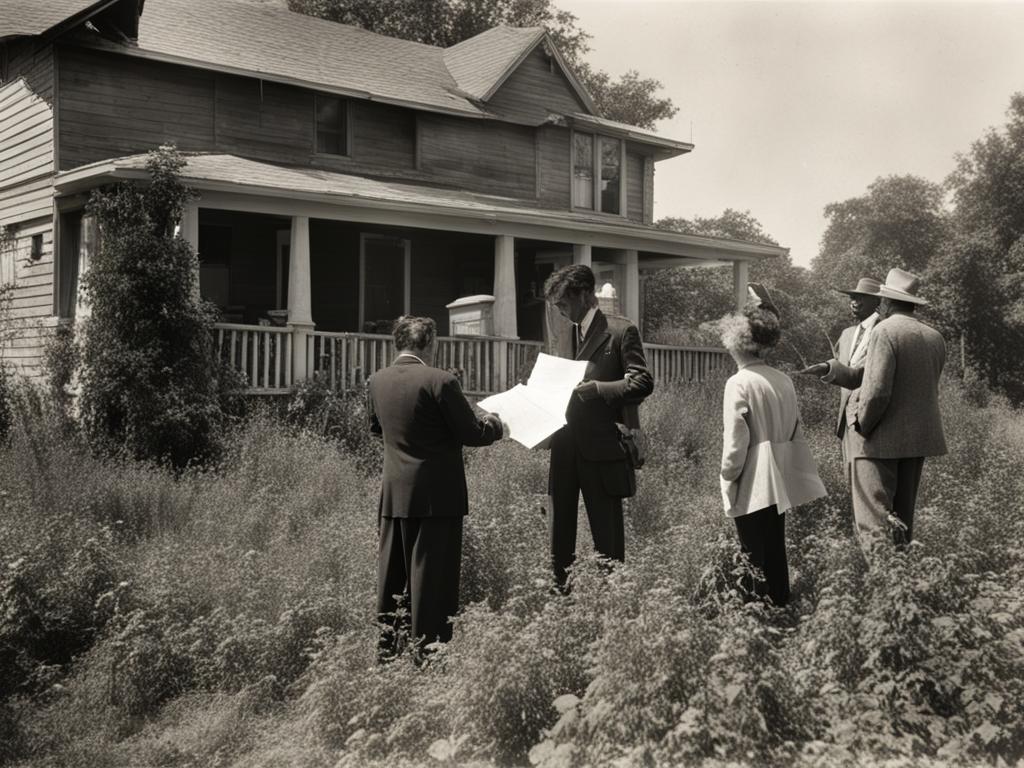Can a Trustee Sell Trust Property Without All Beneficiaries Approving?
A trustee’s ability to sell trust property without the approval of all beneficiaries is a common question in trust law. While the trustee has the legal title to the property, the beneficiaries hold equitable title until distribution. This article explores the trustee’s power to sell trust property, their responsibilities in the sales process, and potential challenges they may face.
Key Takeaways
- A trustee can sell trust property without all beneficiaries’ approval but seeking their consensus is advisable to avoid disputes.
- The trustee’s power to sell property is usually specified in the trust document, and state laws may also grant this authority.
- The trustee should act in the beneficiaries’ best interests, avoid conflicts of interest, and document efforts to secure market value.
- Challenges may arise if the trustee breaches their fiduciary duty or sells property below market value.
- Consulting with a trust litigation attorney can provide guidance and protection for trustees and beneficiaries.
Trustee’s Power to Sell Trust Property
When it comes to selling trust property, a trustee generally has the power to do so without obtaining the explicit approval of all beneficiaries. This authority is typically granted by the terms of the trust instrument, as well as state laws or legal precedents. However, it is important to note that if the trust document requires consultation with beneficiaries before selling certain property, the trustee must adhere to this requirement.
The trustee’s power to sell trust property is not absolute and must be exercised within the boundaries of their fiduciary duties. This means that the trustee should act in good faith, avoid conflicts of interest, and always act in the best interests of the beneficiaries. By prioritizing transparency and open communication, the trustee can help maintain trust and minimize the risk of future disputes.
In summary, trustees have the power to sell trust property without obtaining approval from all beneficiaries, as long as they comply with the terms of the trust document and act in the best interests of the beneficiaries. However, it is advisable for trustees to consult with beneficiaries whenever feasible and maintain transparent communication throughout the process.
Table: Trustee’s Power to Sell Trust Property
| Trustee’s Power | Conditions |
|---|---|
| Generally has the power | Unless restricted by the trust document |
| Can sell property without all beneficiaries’ approval | As long as it aligns with fiduciary duties and acts in the beneficiaries’ best interests |
| May require consultation with beneficiaries | If specified in the trust document |
Trustee’s Responsibilities for Selling Trust Property
A trustee holds a crucial role in managing and selling trust property. While a trustee generally has the authority to sell trust property without obtaining approval from all beneficiaries, they have significant responsibilities to fulfill. These responsibilities ensure the trustee acts in the best interests of the beneficiaries, preserves the value of the trust, and avoids conflicts of interest.
One of the primary responsibilities of a trustee when selling trust property is to make it productive and avoid waste. This means that the trustee should carefully consider the market value of the property and take appropriate steps to secure a fair price. It is advisable for the trustee to document their efforts to obtain market value, such as obtaining professional valuations or opinions.
“The trustee should carefully consider the market value of the property and take appropriate steps to secure a fair price.”
In addition to securing a fair price, the trustee must also reinvest the sale proceeds in a manner that benefits the trust and the beneficiaries. This duty includes selecting investment options that align with the beneficiaries’ best interests and seeking professional advice if needed. The trustee should document their investment decisions and efforts to make the trust property productive, ensuring transparency and accountability.
While the trustee may have the authority to sell trust property without obtaining approval from all beneficiaries, it is important for the trustee to maintain open communication with the beneficiaries. Seeking their consensus and addressing any concerns can help build trust and minimize the risk of disputes or legal challenges. By fulfilling their responsibilities, the trustee can protect the interests of the beneficiaries and ensure the successful sale of trust property.
| Trustee’s Responsibilities for Selling Trust Property |
|---|
| Make trust property productive and avoid waste |
| Secure a fair market value for the property |
| Document efforts to obtain market value |
| Reinvest sale proceeds in a beneficial manner |
| Communicate openly with the beneficiaries |
Disputes over Trustee’s Sale of Property
In the sale of trust property, conflicts and disputes can arise if the trustee does not obtain the consent or approval of all beneficiaries. Beneficiaries may question the sale if they believe that the property is being sold without their consent or if they feel that the price is below market value. These concerns can lead to legal challenges and potential litigation. It is important for trustees to handle the sale of trust property with transparency and open communication to minimize conflicts and maintain the trust and confidence of the beneficiaries.
Disputes may particularly arise if the beneficiaries believe that the trustee is acting in their own interests or engaging in self-dealing. Self-dealing refers to situations where the trustee uses their position to benefit themselves at the expense of the beneficiaries. To avoid these disputes, it is crucial for trustees to act in good faith and solely in the best interests of the beneficiaries. Trustees should carefully document the efforts made to obtain market value for the property and seek professional opinions or valuations to support their actions.
When disputes arise, beneficiaries may seek legal recourse to challenge the trustee’s actions. They may allege that the trustee breached their fiduciary duty or abused their authority. If the court finds the trustee liable for such breaches, the trustee may face personal liability and potential removal from their role. To protect themselves from these potential consequences, trustees should consult with experienced trust litigation attorneys who can provide guidance on their rights, responsibilities, and potential defenses.
| Common Causes of Disputes | Resolution Strategies |
|---|---|
| Inadequate Communication: Lack of open and transparent communication between the trustee and beneficiaries can lead to misunderstandings and disputes. | Open Dialogue: Trustees should maintain regular communication with beneficiaries, providing updates on the sale process and addressing any concerns or questions that arise. |
| Perceived Self-Interest: Beneficiaries may believe that the trustee is acting in their own interests rather than in the best interests of the trust and the beneficiaries. | Transparency: Trustees should document their actions and decisions, ensuring that they can demonstrate that they acted solely in the best interests of the beneficiaries. |
| Low Sale Price: Beneficiaries may challenge the sale if they believe that the property was sold below market value. | Obtain Professional Opinions: Trustees should seek professional valuations or opinions to support the sale price, demonstrating that the property was sold at market value. |
Trustee’s Duty to Act in Beneficiaries’ Best Interests
A trustee has a crucial duty to act in the best interests of the trust beneficiaries. This duty extends to all aspects of their role, including the sale of trust property. When selling trust property, the trustee must carefully consider the beneficiaries’ welfare and ensure that the sale is beneficial to them.
Acting in the best interests of the beneficiaries means that the trustee must act in good faith, avoid conflicts of interest, and preserve and grow the trust assets. They should prioritize the beneficiaries’ needs and goals over their own personal interests or preferences.
By acting in the beneficiaries’ best interests, the trustee helps maintain trust and transparency within the trustee-beneficiary relationship. It also minimizes the risk of legal consequences and potential liability for the trustee in case of any disputes or challenges to the sale. Therefore, it is essential for the trustee to fulfill their fiduciary duty and make decisions that are guided by the beneficiaries’ well-being and long-term financial interests.
“The trustee’s primary responsibility is to protect and promote the beneficiaries’ interests. This means putting their needs first and making decisions that maximize the value of the trust property for their benefit.”
Table: Trustee’s Duty to Act in Beneficiaries’ Best Interests
| Responsibilities | Description |
|---|---|
| 1. Fiduciary Duty | The trustee has a legal obligation to act in the beneficiaries’ best interests and maintain their trust. |
| 2. Good Faith | The trustee must act honestly, fairly, and with integrity when making decisions related to the sale of trust property. |
| 3. Avoiding Conflicts of Interest | The trustee should avoid any situation where their personal or financial interests conflict with the beneficiaries’ best interests. |
| 4. Preserving and Growing Trust Assets | The trustee must strive to maximize the value of the trust property and make wise investment decisions for the beneficiaries’ benefit. |
By fulfilling their duty to act in the beneficiaries’ best interests, the trustee contributes to the overall success and effectiveness of the trust, ensuring that the beneficiaries receive the maximum benefits and financial security possible.

Potential Challenges for Trustees Selling Trust Property
Trustees may face potential challenges and accusations if they are perceived to have breached their fiduciary duty by selling trust property below market value. This can lead to allegations of the trustee acting against the best interests of the beneficiaries and potentially abusing their position of trust. Such accusations can result in complex trust litigation proceedings and personal liability for the trustee if found guilty of breaching their duties.
Accusations of breaching fiduciary duties can have serious consequences for trustees, as beneficiaries or interested parties may seek damages or removal of the trustee from their role. To protect themselves against such challenges, trustees should consult with experienced trust litigation attorneys who can provide guidance and help determine their rights and responsibilities in these situations.
“Trustees who breach their fiduciary duty by selling trust property below market value or acting against the beneficiaries’ interests may face legal consequences.”
One way for trustees to safeguard against accusations of breaching their fiduciary duties is by thoroughly documenting their efforts to secure market value for the property being sold. This includes obtaining professional opinions from appraisers, real estate brokers, or business valuers. By transparently documenting these efforts, trustees can demonstrate that they acted in good faith and made reasonable efforts to obtain the highest prices for the trust property.
It is crucial for trustees to prioritize transparency and avoid any appearance of impropriety when selling trust property, particularly when selling to themselves or related entities. Even if the trust document allows for such transactions, consulting with trust litigation attorneys can help trustees navigate potential conflicts of interest and ensure compliance with their fiduciary duties.

Table: Potential Challenges for Trustees Selling Trust Property
| Challenges | Solutions |
|---|---|
| Accusations of breach of fiduciary duty | Consult with trust litigation attorneys, document efforts to secure market value |
| Legal consequences and personal liability | Seek guidance from experienced trust litigation attorneys |
| Perceptions of conflicts of interest | Prioritize transparency, avoid transactions with self or related entities |
Trustee’s Documentation and Efforts to Secure Market Value
When a trustee sells trust property, it is crucial for them to thoroughly document their efforts to secure market value. By doing so, they can protect against potential challenges or disputes that may arise in the future. Transparency and proper documentation can help reassure beneficiaries and minimize the risk of legal issues.
Trustees should consider obtaining opinions of value from professionals such as real estate appraisers, brokers, or business valuers. These experts can provide valuable insights into the market value of the property being sold. It is important for the trustee to keep records of the values obtained and the steps taken to obtain them.
Transparency and proper documentation can help reassure beneficiaries and minimize the risk of legal issues.
By transparently documenting their efforts to secure market value, trustees can demonstrate that they have made reasonable efforts to obtain the highest prices for trust property. This documentation is especially important if beneficiaries raise concerns about the sale price being below market value. Trustees can rely on these records to support their actions and show that they acted in the best interests of the beneficiaries.
Ultimately, trustees have a duty to fulfill their fiduciary responsibilities and act in the best interests of the trust and its beneficiaries. Thoroughly documenting their efforts to secure market value is an integral part of fulfilling this duty and ensuring the trust’s assets are managed responsibly.

Table: Documentation Checklist
| Documentation | Description |
|---|---|
| Opinions of value | Obtain valuations and opinions from professionals such as appraisers and brokers to determine the market value of the trust property. |
| Communication records | Keep a record of all conversations, consultations, and written correspondence with beneficiaries regarding the sale of trust property. |
| Efforts to secure market value | Document the steps taken to obtain the highest prices for the trust property, including any negotiations, marketing efforts, or additional professional consultations. |
| Comparative market analysis | Include a comparative market analysis that showcases how the sale price aligns with similar properties in the market to justify the sales value. |
Trustee Selling Property to Themselves or Related Entities
When a trustee sells trust property to themselves or entities they are affiliated with, it raises concerns about conflicts of interest and self-dealing. Although some trust documents may explicitly allow for such transactions, it is crucial for trustees to exercise caution and prioritize transparency to avoid any appearance of impropriety. Consulting with an experienced trust litigation attorney can help trustees navigate these potential conflicts and ensure compliance with their fiduciary duties.
Trustees should be aware that selling trust property to themselves or related entities may be viewed skeptically by beneficiaries or other interested parties. It is essential for trustees to maintain open communication with the beneficiaries and provide clear justifications for any transactions involving self-sale or sales to related entities. By acting in the best interests of the beneficiaries and documenting the reasoning behind such sales, trustees can minimize the risk of disputes and legal challenges.
“Trustees have a fiduciary duty to act in the best interests of the trust beneficiaries. Selling trust property to themselves or related entities can create conflicts of interest and raise questions about the trustee’s adherence to their duties.”
Example Scenario:
Consider a scenario where a trustee manages a family trust that includes a real estate property. The trustee, who is also a beneficiary of the trust, decides to purchase the property for personal use. While the trustee may have personal financial motives for the transaction, they must carefully consider the potential conflicts of interest and ensure that the sale is in the best interests of all beneficiaries. By seeking independent valuations, obtaining consent from other beneficiaries, and documenting the fair market value of the property, the trustee can mitigate any allegations of self-dealing and protect themselves from legal consequences.
| Trust Property Sale to Trustee | Recommendations for Trustees |
|---|---|
| 1. Obtain independent valuations to determine fair market value. | 1. Prioritize transparency and open communication with beneficiaries. |
| 2. Seek consent or written agreements from other beneficiaries. | 2. Document the reasoning behind the sale and provide justifications. |
| 3. Retain all documentation related to the sale for future reference. | 3. Consult with an experienced trust litigation attorney for guidance and protection. |

Trustee’s Obligation to Reinvest Sale Proceeds
When a trustee sells trust property, they have a duty to reinvest the sale proceeds in a manner that benefits the trust and the beneficiaries. This obligation ensures that the trust assets remain productive and continue to generate income or value for the beneficiaries. By reinvesting the sale proceeds wisely, the trustee maximizes the long-term benefits of the trust.
Reinvesting the sale proceeds involves careful consideration of investment options that align with the beneficiaries’ best interests. The trustee should seek professional advice if needed to ensure that the reinvestment is profitable and sustainable. Whether it’s exploring real estate opportunities, stock market investments, or other ventures, the trustee must conduct thorough research and due diligence to make informed decisions.
By fulfilling their obligation to reinvest the sale proceeds, the trustee ensures the continued growth and stability of the trust. This duty also helps prevent any wasteful use of the sale proceeds and promotes the trustee’s fiduciary responsibility to act in the best interests of the beneficiaries.

Table: Examples of Suitable Reinvestment Options for Trust Proceeds
| Investment Option | Description |
|---|---|
| Real Estate | Investing in income-generating properties, such as rental apartments, commercial buildings, or land development projects. |
| Stocks and Bonds | Purchasing shares in publicly traded companies or investing in government or corporate bonds. |
| Mutual Funds | Investing in professionally managed portfolios that diversify the trust’s assets across different investment vehicles. |
| Business Ventures | Participating in the establishment or acquisition of businesses that have growth potential and can generate income for the trust. |
| Alternative Investments | Exploring opportunities in private equity, venture capital, real estate investment trusts (REITs), or hedge funds. |
“Reinvesting the sale proceeds wisely is crucial to maintain the trust’s financial health and secure the beneficiaries’ long-term interests.”
In summary, the trustee has a duty to reinvest the sale proceeds in a manner that makes the trust property productive and avoids wasteful use of the funds. By carefully considering suitable investment options and seeking professional advice, the trustee fulfills their obligation to act in the beneficiaries’ best interests. The reinvestment of sale proceeds helps ensure the continued growth and profitability of the trust, maximizing the long-term benefits for the beneficiaries.
Potential Legal Consequences for Trustees
Trustees who breach their fiduciary duty by selling trust property below market value or acting against the beneficiaries’ interests may face legal consequences. Beneficiaries or other interested parties can hold the trustee personally liable for their actions, seeking damages or removal of the trustee from their role. Breach of fiduciary duty claims and allegations of abuse can lead to complex trust litigation proceedings. It is crucial for trustees to consult with experienced trust litigation attorneys to understand their rights, responsibilities, and potential defenses in such cases.
To illustrate the potential legal consequences, the following table outlines common legal actions that may arise from a trustee’s breach of fiduciary duty:
| Action | Description |
|---|---|
| Trustee Removal | If a trustee is found to have breached their fiduciary duty, a court may remove them from their position as trustee. |
| Surcharge | A court may order a surcharge against a trustee, requiring them to personally reimburse the trust for any losses caused by their breach. |
| Beneficiary Suit | Beneficiaries may file a lawsuit against the trustee, seeking damages for financial losses or other harm resulting from the breach. |
| Injunction | If a breach of fiduciary duty is ongoing or imminent, a court may issue an injunction to prevent further harm to the trust or beneficiaries. |
“Trustees have a legal and ethical obligation to act in the best interests of the trust beneficiaries. Breaching this duty can have severe consequences, including personal liability and loss of trust. Trust litigation can be complex and costly, making it crucial for trustees to seek legal guidance and act in accordance with their fiduciary duties.”
Trustees should be aware that the specific legal consequences may vary depending on the jurisdiction and the particulars of the breach. Consulting with a knowledgeable trust litigation attorney is essential to understand the potential risks and navigate legal proceedings effectively. By prioritizing their fiduciary duties and avoiding breaches, trustees can protect themselves and fulfill their obligations to the trust and its beneficiaries.

Trustee’s Obligation to Consult with Beneficiaries
When a trustee is considering selling trust property, it is important for them to consult and communicate with the beneficiaries. While the trustee may have the authority to sell the property without obtaining explicit approval from all beneficiaries, involving them in the decision-making process can help prevent disputes and foster trust. Seeking written agreements or consents from the beneficiaries adds a layer of protection for the trustee and ensures that all parties are on the same page.
Open communication between the trustee and beneficiaries allows for a shared understanding of the reasons behind the sale and how it aligns with the goals of the trust. By engaging the beneficiaries, the trustee can gain valuable insights and considerations that may influence the decision-making process. This collaborative approach can lead to consensus and reduce the likelihood of potential legal challenges in the future.
“The trustee’s duty to consult with beneficiaries is not just a legal obligation but also a means of building and maintaining trust in the trustee’s decision-making.”
In addition to consulting with beneficiaries, the trustee should also keep thorough documentation of all communication, agreements, and consents obtained. These records can serve as evidence of the trustee’s efforts to involve the beneficiaries and mitigate any potential claims of impropriety. By maintaining transparent and well-documented processes, the trustee can demonstrate their commitment to acting in the best interests of the beneficiaries and fulfilling their fiduciary duties.
Benefits of Consulting with Beneficiaries:
- Promotes transparency and communication
- Reduces the risk of disputes or legal challenges
- Gains valuable insights and considerations from beneficiaries
- Builds and maintains trust in the trustee’s decision-making
| Benefit | Description |
|---|---|
| Promotes transparency and communication | By involving beneficiaries, the trustee can keep them informed about the sale and the reasons behind it. |
| Reduces the risk of disputes or legal challenges | Seeking written agreements or consents from beneficiaries helps establish a clear understanding and consensus. |
| Gains valuable insights and considerations from beneficiaries | The trustee can benefit from the beneficiaries’ perspectives and input, which may influence the decision-making process. |
| Builds and maintains trust in the trustee’s decision-making | Consulting with beneficiaries demonstrates the trustee’s commitment to acting in their best interests and fulfilling fiduciary duties. |

Conclusion
In conclusion, a trustee possesses the authority to sell trust property without obtaining approval from all beneficiaries. However, it is advisable for the trustee to prioritize transparency and maintain open communication with the beneficiaries throughout the sales process. Seeking their approval or consensus whenever feasible can help prevent disputes and foster trust.
Furthermore, documenting the trustee’s efforts to secure market value for the property and reinvesting the sale proceeds in a manner that benefits the trust and its beneficiaries are crucial responsibilities. By fulfilling their fiduciary duties, acting in the best interests of the beneficiaries, and avoiding conflicts of interest, trustees can navigate potential legal challenges more effectively.
Consulting with an experienced trust litigation attorney is highly recommended for trustees to ensure compliance with their obligations and to understand their rights and potential defenses. By adhering to these guidelines, trustees and beneficiaries can work together to ensure a smoother and more successful process of selling trust property.
FAQ
Can a Trustee Sell Trust Property Without All Beneficiaries Approving?
Yes, a trustee does not necessarily need approval from all beneficiaries to sell trust property. However, seeking the approval of beneficiaries is highly recommended to avoid potential litigation.
What are the Trustee’s Powers to Sell Trust Property?
Unless restricted by the terms of the trust document, a trustee has the power to sell trust property without obtaining the approval of all beneficiaries. The trustee’s authority to sell property is usually specified in the trust instrument, and state laws or legal precedents may also grant the trustee this power.
What are the Trustee’s Responsibilities for Selling Trust Property?
A trustee has a fiduciary duty to make trust property productive and avoid waste. When selling trust property, the trustee must reinvest the sale proceeds in a manner that is profitable for the ultimate benefit of the trust beneficiaries. The trustee should also be transparent, document their efforts to secure market value, and avoid conflicts of interest.
What can Cause Disputes over the Trustee’s Sale of Property?
Trust disputes can arise if a trustee sells property for a price deemed below market value by the beneficiaries. Beneficiaries may also raise concerns if the trustee appears to be acting in their own interests or engaging in self-dealing.
What is the Trustee’s Duty to Act in the Beneficiaries’ Best Interests?
A trustee has a duty to act in the best interests of the trust beneficiaries. This means that when selling trust property, the trustee should consider the beneficiaries’ welfare and ensure that the sale benefits them. The trustee must act in good faith, avoid conflicts of interest, and fulfill their fiduciary duty to preserve and grow the trust assets.
What are the Potential Challenges for Trustees Selling Trust Property?
Trustees may face challenges if they breach their fiduciary duty by selling trust property significantly below market value or selling property that cannot or should not be sold. Beneficiaries or other interested parties may accuse the trustee of acting against the beneficiaries’ interests.
How should a Trustee Document and Secure Market Value for Trust Property?
To protect against potential challenges or disputes, a trustee should thoroughly document their efforts to secure market value for any trust property being sold. This includes obtaining opinions of value from professionals such as real estate appraisers, brokers, or business valuers.
Can a Trustee Sell Trust Property to Themselves or Related Entities?
Trustees should exercise caution when selling trust property to themselves or entities they are affiliated with, such as another trust or company they manage. Such transactions may raise concerns about conflicts of interest and self-dealing.
What is the Trustee’s Obligation to Reinvest Sale Proceeds?
When a trustee sells trust property, they have a duty to reinvest the sale proceeds in a manner that benefits the trust and the beneficiaries. This duty includes making the trust property productive and avoiding wasteful use of the sale proceeds.
What are the Potential Legal Consequences for Trustees?
Trustees who breach their fiduciary duty by selling trust property below market value or acting against the beneficiaries’ interests may face legal consequences. Beneficiaries or other interested parties can hold the trustee personally liable for their actions, seeking damages or removal of the trustee from their role.
What is the Trustee’s Obligation to Consult with Beneficiaries?
While a trustee may have the authority to sell trust property without obtaining explicit approval from all beneficiaries, it is advisable for the trustee to consult with the beneficiaries and seek their consensus whenever possible. Open communication, transparency, and maintaining a positive relationship with the beneficiaries can help avoid disputes and build trust.

